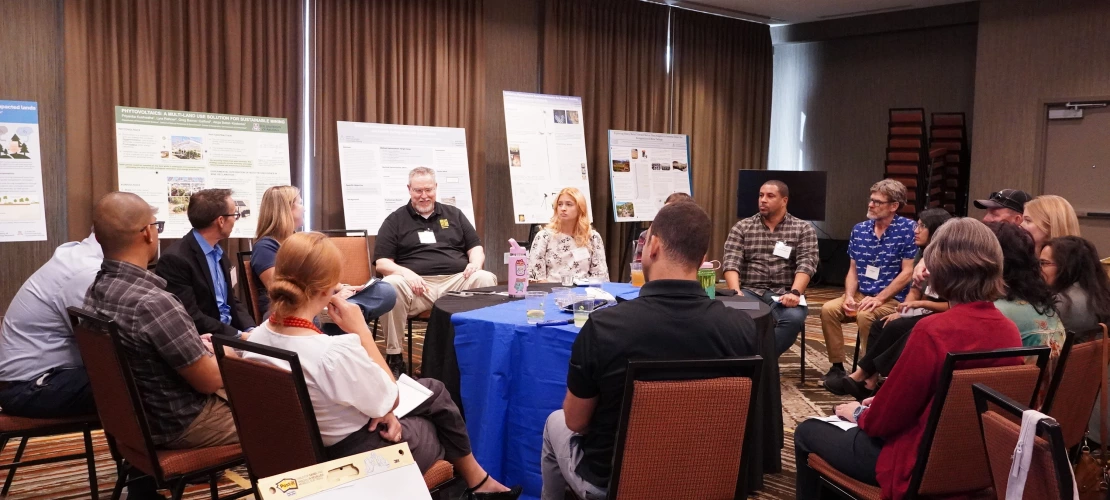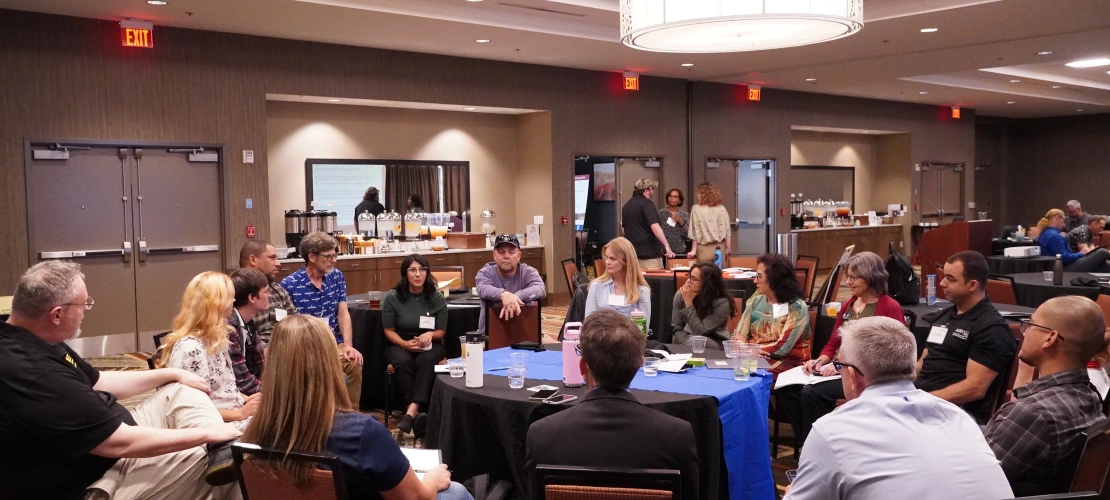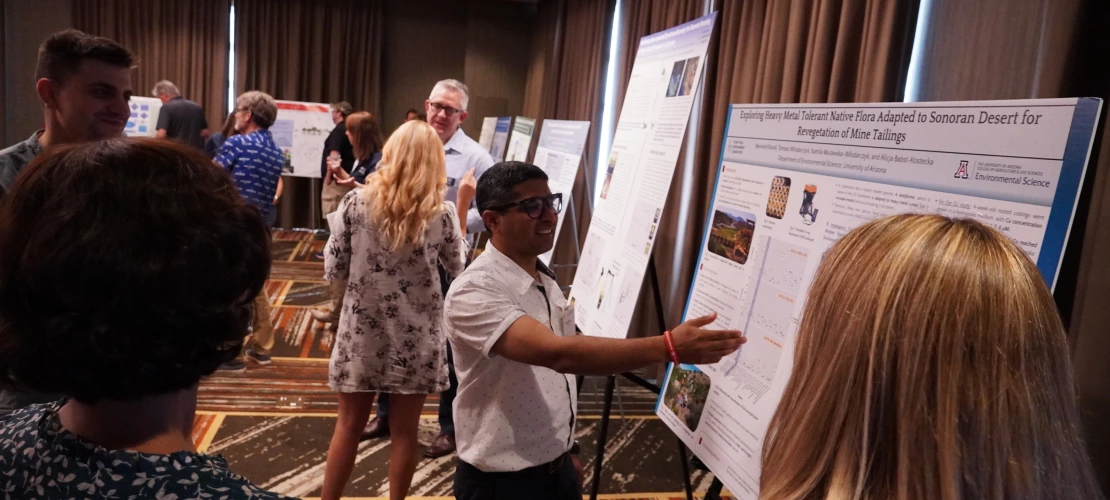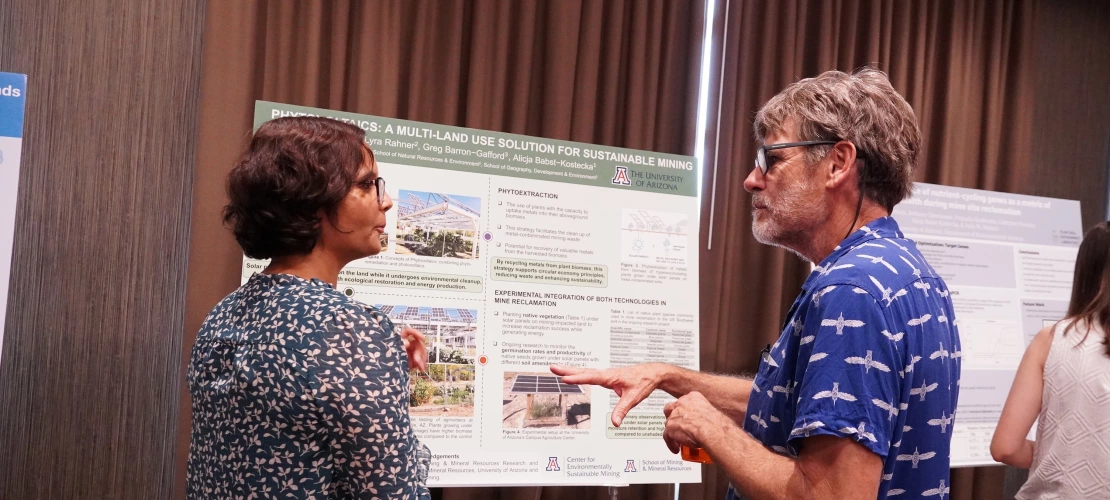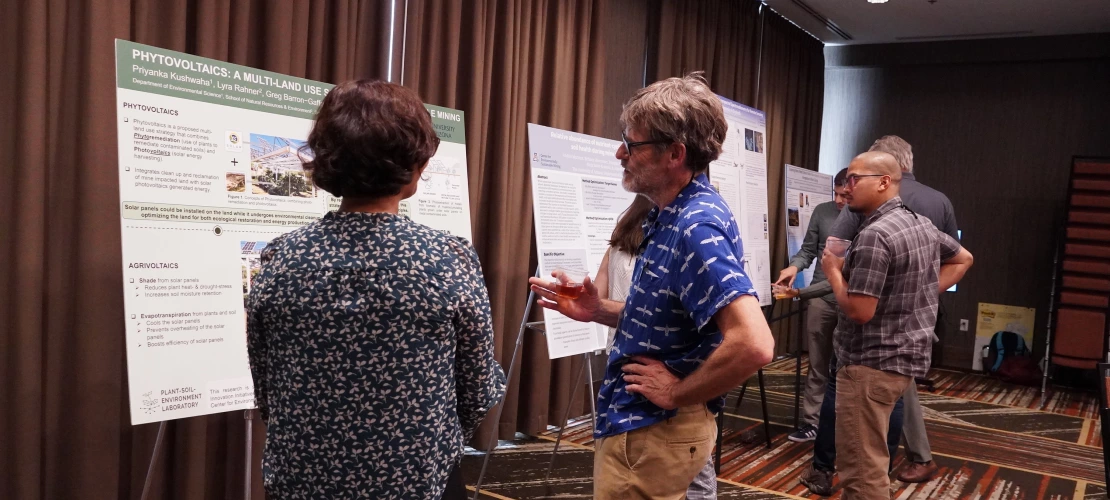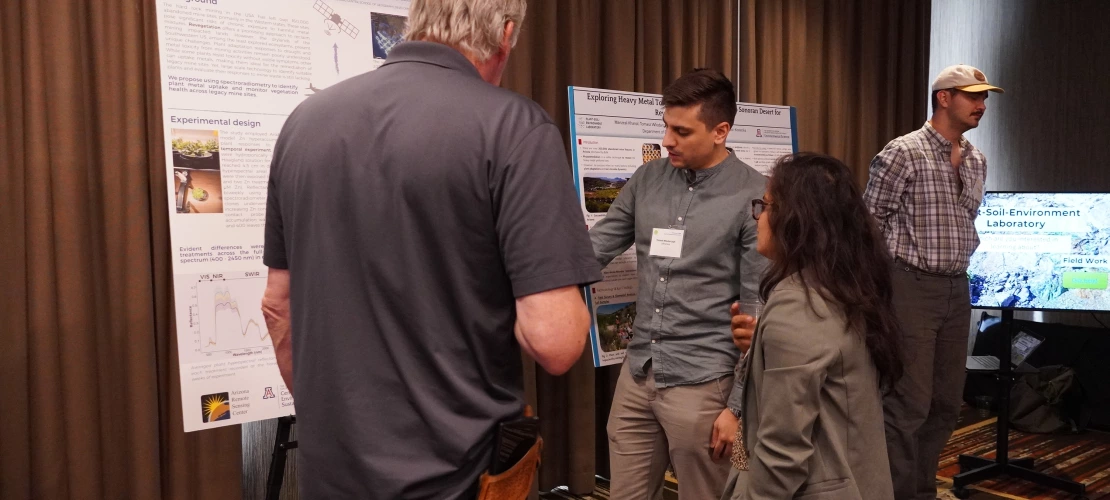CESM brings together experts to drive sustainable mining practices in Arizona
The Center for Environmentally Sustainable Mining held its biennial forum where experts from government, industry, and academia explored solutions for sustainable mining and land restoration.

Arizona's mining sector is evolving to balance economic growth with responsible practices that protect local ecosystems and communities, and the Center for Environmentally Sustainable Mining (CESM) has a vital role to play.
Co-directed by Environmental Science research professor emerita, Julie Neilson, and associate professor, Alicja Babst-Kostecka, CESM leverages industry support to develop research and educational initiatives to enhance the sustainability of mining.
This October, CESM held its biennial Applied Research Forum where over 65 leading contributors across government agencies, industry professionals and academics all convened to address critical issues related to the environmental sustainability of mining.
Common concerns in this field range from policy development and economic stability to environmental impact and social responsibility. Representatives from agencies including the U.S. Forest Service, Arizona Department of Environmental Equality and Bureau of Land Mangement attended, alongside mining industry leaders such as Resolution Copper and KGHM, who presented case studies highlighting the value of CESM industry-academic collaborations in advancing sustainable mine reclamation practices.
Mine reclamation -the process of restoring mining-affected land to a safe and usable state- was a focal point. Attendees agreed that reclamation efforts must be tailored to each site’s specific needs.
Misael Cabrera, the director of the School of Mining and Mineral Resources, believes in the importance of bridging the gap between government agencies and academia to find real solutions to these challenges.
“As our planet’s need for minerals increases, so does our need for reclamation and revegetation,” Cabrera said. “CESM’s work is a vital enabler for social license – if we can’t show success in arid climate reclamation, it will continue to be difficult to open new mines.”
Public sentiment surrounding mining is often mixed, with concerns about environmental impact balanced by recognition of mining’s contributions to local and state economies.
“We need better communication and accessible scientific data for the public,” said Grace Bombulum, a forest geologist with the U.S. Forest Service. “This could empower people to participate in research and understand the current progress being made.”
Attendees from across sectors expressed appreciation for the forum’s collaborative environment and look forward to continued partnership with CESM in addressing the pressing issues facing Arizona's mining industry.
“The recent Center for Environmentally Sustainable Mining forum highlighted the vital collaboration between industry, academia, and government in tackling the unique reclamation challenges of arid environments,” said Paul Marsh, the Arizona State Mine Inspector. “While progress has been made, it's clear that further research is essential for achieving sustainable mining practices.”

